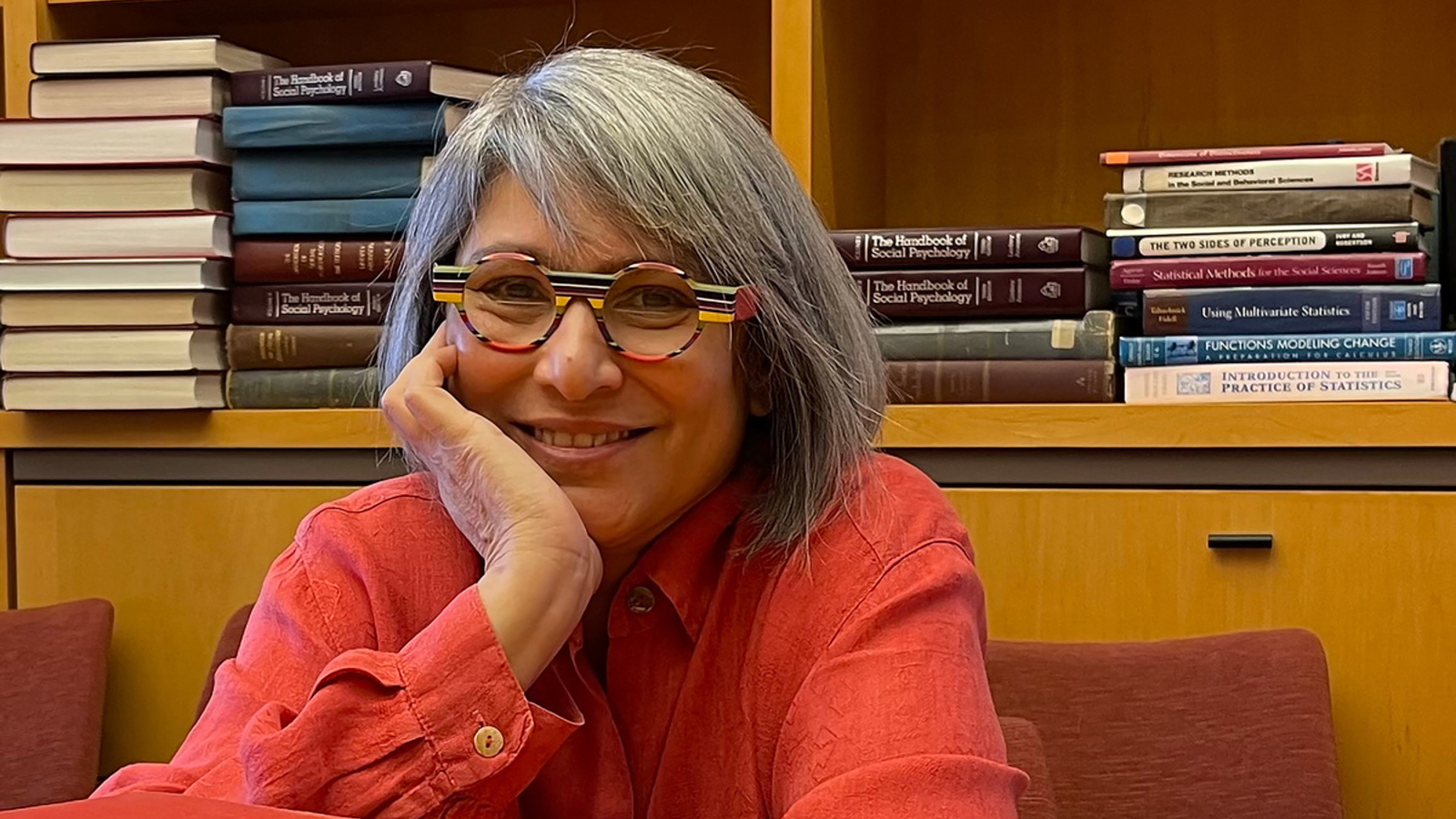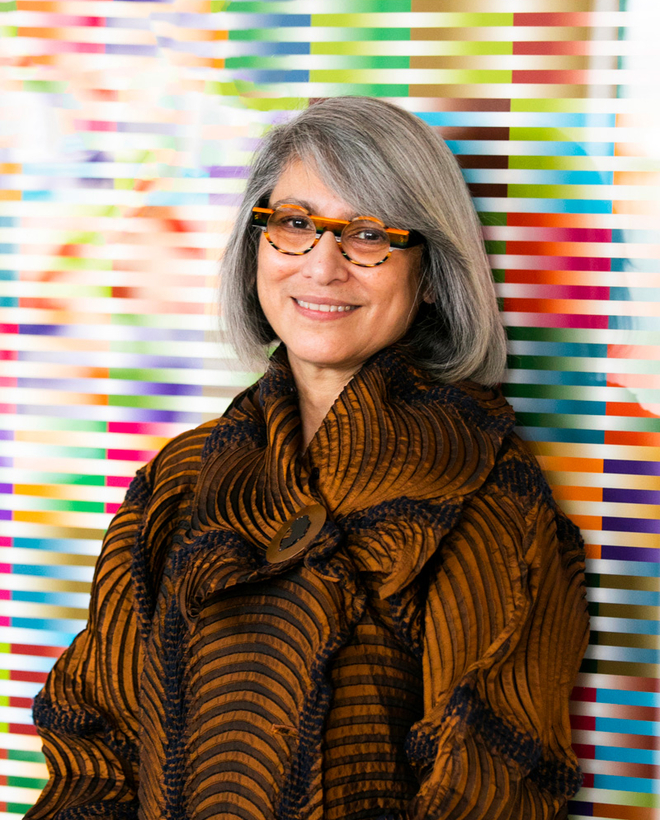Mahzarin R. Banaji


Mahzarin R. Banaji
Groundbreaking scholar whose pioneering work has helped establish the role that unconscious processes play in governing human social action, you have educated us to appreciate how our judgment of others may spring, not from conscious dislike or animosity, but from implicit biases we do not recognize or understand. These “mind bugs” occur outside of our awareness or control and give rise to prejudices based on race, gender, age, and other characteristics. Intrepid investigator whose work has opened minds and hearts by illuminating what leads us to categorize others, we are pleased to admit explicit bias in your favor as we honor a beloved former Yale faculty member with the degree of Doctor of Social Science.
Mahzarin R. Banaji, the eminent social psychologist who, with colleagues, coined the now-widely used term “implicit bias” in the 1990s while she was a member of the Yale faculty, is the Richard Clarke Cabot Professor of Social Ethics at Harvard University. Her research focuses on the disparities between people’s conscious values and the cultural “thumbprint” of their deeply embedded, less conscious attitudes and beliefs. This work has been influential in revealing how unconscious thoughts, feelings, and behaviors lead to unequal treatment based on characteristics such as age, gender, sexuality, race, ethnicity, and social class—even in the absence of explicit conscious prejudice.
Banaji’s curiosity about human social interactions dates to her earliest childhood in southern India. As a young girl with severe, uncontrolled asthma, she often missed school and was largely unable to play with her classmates. Instead, she became a keen observer of them from afar, sitting on the balcony of her family’s home and observing the dynamics of the neighborhood. She attended Nizam College in Hyderabad, completing a bachelor’s degree in English, philosophy, and psychology, and went on to earn a master’s in general psychology from Osmania University before moving to the United States to pursue her doctorate. At Ohio State University she specialized in experimental social psychology and found particular fascination in the emerging research on implicit memory—that is, the memory that humans store and access unconsciously.
“You leave Yale with a dazzling set of talents and values enriched by your education. Use these talents and values to create light, and to doggedly pursue the truth. With Lux et Veritas, bear witness.”
After completing her Ph.D., Banaji joined the Yale faculty as an assistant professor of psychology. She spent fifteen years in New Haven, ultimately as the Reuben Post Halleck Professor of Psychology, and received Yale College’s Lex Hixon ’63 Prize for Teaching Excellence in 1991. In her current role at Harvard—where she was named a Harvard College Professor for her excellence in undergraduate teaching—she has continued to study social group attitudes and beliefs in adults and children, relying on a diverse set of instruments including behavior, neural signatures, and computational approaches to large language corpora. She is a co-author (with Anthony Greenwald, Yale ’59 B.A.) of Blindspot: Hidden Biases of Good People, published in 2013, and the creator of the forthcoming online course Outsmarting Implicit Bias. Her free educational platform, outsmartingimplicitbias.org, takes an interactive approach to teaching the science of implicit bias and provides pathways for individual, institutional, and societal action to combat persisting inequities.
Banaji’s leadership in her field is reflected by membership in the Association for Psychological Science (of which she served as president from 2010 to 2011) and election to the American Academy of Arts and Sciences (2008), the National Academy of Sciences (2018), and the American Philosophical Society (2020). In 2009 she was named Herbert A. Simon Fellow of the American Academy of Political and Social Science, and in 2015 she was inducted as a fellow of the British Academy. She is the recipient of numerous awards and honors, including a John Simon Guggenheim Memorial Foundation Fellowship (1997), a Yale Tercentennial Medal (2001), the Morton Deutsch Award for Social Justice (2006), the William James Fellow Award (2016), the American Psychological Association’s Award for Distinguished Scientific Contribution (2017), the Cattell Fellow Award (2022), the National Academy of Sciences’ Atkinson Prize (2022) and the Association for Psychological Science Mentor Award (2023).
Banaji sits on the Board of Directors of the Union of Concerned Scientists, a nonprofit organization dedicated to promoting rigorous, independent science in service to a healthy, safe, and just future.